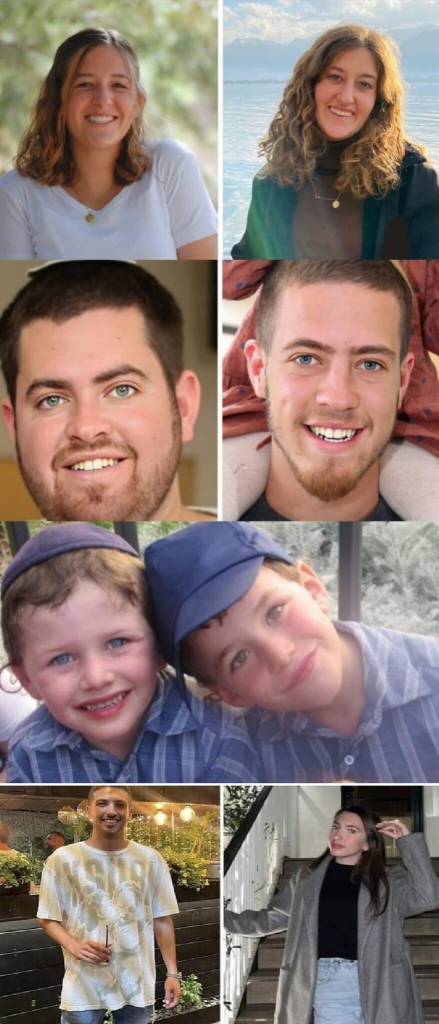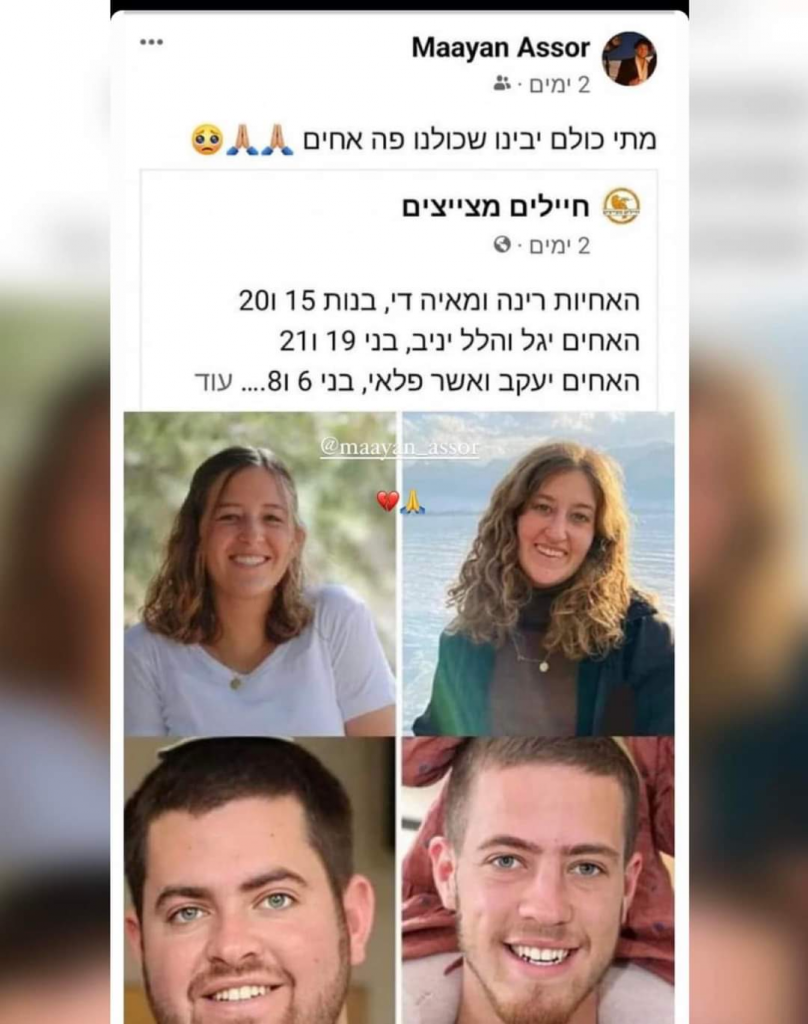
JERUSALEM — In a chilling post published just days before the latest set of siblings, Maayan and Sahar Assor, died a premature death in Israel during a flash flood, 24-year-old Maayan himself published a picture of the three sets of siblings who have been murdered in terrorist attacks in the last two months in Israel. On top of the pictures, Maayan wrote a caption: “When will everyone understand that we are all brothers here?”

Maayan realized that there is no chance, no random coincidence in the fact that these siblings perished together. If such an instance would occur once, it might be deemed an unfortunate accident. That it has occurred already four times and all in untimely and tragic circumstances requires us to take stock, to assess why this horrific calamity has occurred to us with such frequency.
The Rambam writes in Hilchos Taanis that one of the ways of Teshuva is to realize that our sins have brought on the disasters, “but if they will not shout and cry out and will say that this is the way of the world happening to us and it happened by coincidence, this is a cruel approach which will lead them to maintain their evil behavior and will bring other tragedies, as it says in the Torah ‘If you act with me randomly, I will act randomly with you etc.’ meaning that I will bring a tragedy so that you repent and if you say it is random I will add the same kind of disaster again.”
The obvious and most simple lesson we need to learn is that which Maayan expressed so simply and succintly: We are brothers, we must act like brothers to one another or else Hashem will once again punish us with brothers who fall together.
It may sound like a cliche, but there are four practical aspects of this brotherhood which have unfortunately weakened and which we desperately need to strengthen:
Religious-Secular: In recent years, the chasm between religious people and their secular counterparts has grown alarmingly wide and both sides have expressed fiery, divisive rhetoric. While there obviously a need to create separate frameworks to maintain the differences between the communities, the religious should remember that most secular people today are Tinokos Shenishbu, people who grew up with zero knowledge and little religious consciousness and therefore cannot be expected to appreciate the religious view of life. At the same time, they themselves must recognize and respect the feelings of the religious and their need to sustain the way of life which has kept the Jewish people vibrant for thousands of years.
Ashkenazi-Sephardi : In Israeli society, there is still a latent discrimination, a sense of superiority which exists among the Ashkenazi Jews and which is keenly and painfully felt by Sefardim. The issue is discussed at length on radio shows, in Knesset debates, in sociology faculties but even after 75 years continues to simmer and cause tensions and angry responses. Sefardim feel that they are marginalized in major leadership areas, that despite numbering 60% of Israeli society, they do not get the same opportunities, the same respect, the same prominent seminars for their daughters. Most of the elite- the judges in the Supreme court, the political leaders, the heads of the economy, the army generals – are predominantly Askenazi. This must change – Sefardim must receive the same opportunities, the same legitimacy, the same respect, and Ashkenazim must realize and appreciate their stellar contributions to Israel’s success.
Chasidic- Lithuanian: Within the chareidi community the factions which once made up the community have splintered into sub-groups, many of whom have prominent, pious leaders but whose adherents seem to feel that this allows them to denigrate and disparage the leaders of other groups. Besides this being a desecration of G-d’s name, it is also a divisive factor between factions and groups which have more in common than they differ.
Right-Left: The past few months have seen the vituperation and mudslinging between right and left-wing supporters and politicians in Israel descend to a new nadir. Judicial reform does not justify calling others traitors, Nazis and other such appellations. Yes, we may disagree but we are all brothers and must maintain the respect due a sibling.
May this pair of siblings tragically killed in the flash floods be the last such tragedy for Am Yisrael and may we learn the final lesson that Maayan wished to impart- we are all brothers.
As reported by VINnews
